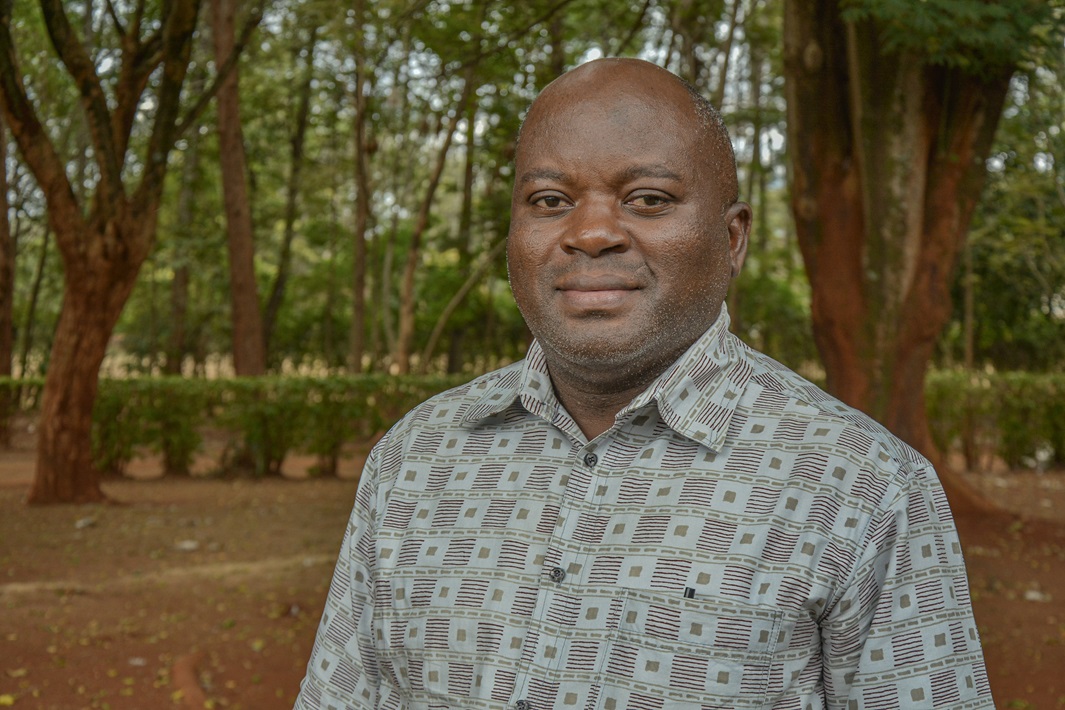We continue with our Anthology of Consolata Missionary Experience in Africa, a journey across the 11 countries where the Consolata Missionaries are present. These missions are organized into seven circumscriptions: the South Africa–Eswatini Delegation, the Mozambique–Angola Region, the Tanzania–Madagascar Region, the Kenya–Uganda Region (the mother region), the Ethiopia Region, the Ivory Coast Delegation, and the DR Congo Region.
Across these territories, Consolata Missionaries engage in a wide variety of ministries, parish work, first evangelization, education, healthcare, social outreach, and the formation of future missionaries.
In this instalment, our focus turns to Ivory Coast. Fr. Alexander Elikono Mukolwe, a Consolata Missionary from the Diocese of Kakamega, Kenya, has served in Ivory Coast for 16 years. In this interview, he shares his experiences of mission in a predominantly Muslim country, the growth of the Catholic faith, and the challenges and hopes of evangelization in West Africa.
Q: Kindly introduce yourself and tell us about your missionary background.
Fr. Alexander: My name is Fr. Alexander Elikono Mukolwe, IMC. I come from the Diocese of Kakamega in Kenya, and I am a Consolata Missionary currently working in Ivory Coast. I have served there for 16 years.
Ivory Coast is a West African country where about 55% of the population is Muslim, 30% are Christians, and around 15% follow African traditional religions. The country is geographically and culturally divided into two: the southern part, where Christians are more numerous, and the northern part, where Christians make up only about 3% of the total population.
Q: When did the Consolata Missionaries begin their mission in Ivory Coast, and how many are currently serving there?
Fr. Alexander: The Consolata Missionaries began their mission in Ivory Coast in 1996, so we are approaching 30 years of presence. Currently, we have 16 missionaries working across six communities. Three of these are in the southern region, two in the north, and one is our formation house located in the capital, Abidjan.
Q: What is the nature of your missionary work in a country where Muslims are the majority?
Fr. Alexander: Our primary mission as Consolata Missionaries is ad gentes, to proclaim the Word of God to those who have not yet heard it or who know little about Christ. We work mostly in remote areas, sharing life and values with the people while helping them encounter Christ.
Working in a predominantly Muslim country has been a very enriching experience. It has opened doors for interreligious dialogue and collaboration. Together with our Muslim brothers and those who follow African traditional religions, we strive to build mutual understanding, share common values, and promote peace.
Q: How would you describe the faith journey of the Catholic Church in Ivory Coast?
Fr. Alexander: It has been a remarkable journey. Last year, we celebrated 100 years of evangelization and also marked a century since the ordination of the first Ivorian priest. Although Christians are a minority, their faith is deep and vibrant.
You can see their strong love for the Church, people walk long distances to attend Mass and to pray together. They make sacrifices to live their Christian faith in community. These centenary celebrations were moments of joy and thanksgiving, acknowledging how the Catholic faith has shaped not only the Church but also the wider Ivorian society.
Q: What are the main missionary needs and challenges in Ivory Coast today?
Fr. Alexander: Ivory Coast needs more missionaries to continue fostering peace, justice, and unity. The country has experienced political instability, and as you know, there are ongoing debates about presidential terms and constitutional respect.
Beyond politics, poverty, especially in the northern regions, is a major challenge. Many people live in very difficult conditions, and there is a great need for human promotion activities to help restore dignity and improve livelihoods.
As a Church, we continually appeal for the respect of the constitution and the laws of the nation. But we also recognize that democracy, as understood in the African context, is still evolving. We pray and work toward a society where justice and peace prevail.
Q: You recently attended a continental meeting of the Consolata Missionaries. How do such gatherings impact you as a missionary leader?
Fr. Alexander: These meetings are very enriching. They bring together missionaries from different continents to share experiences, joys, challenges, and hopes. Sometimes as leaders, we face difficulties and feel alone, but when we meet, we realize that our challenges are shared.
It’s a moment of encouragement and renewal, a reminder that we are all pilgrims of hope. We leave such gatherings strengthened in our missionary spirit, inspired by the stories and experiences of our fellow missionaries, and more committed to our common mission of evangelization.
Q: What message would you like to share with the wider Church about mission in places like Ivory Coast?
Fr. Alexander: I would say that mission today is not only about preaching Christ but also about living in communion with others, especially in contexts of religious and cultural diversity. We are called to build bridges, promote dialogue, and witness to the Gospel through love and service.
God works in human hearts, even in places where Christianity is not the majority faith. The people of Ivory Coast, Muslims, Christians, and followers of traditional religions alike, are very welcoming and full of good values. We can all learn from one another as we strive to build a peaceful and united world as sons and daughters of God.
Editor’s Note: This interview was conducted in Sagana, Kenya, on August 15, 2025, during the Continental Meeting of the Consolata Missionaries’ newly elected superiors and their councils. The conversation was led by Paschal Norbert, Editor of CISA News.
